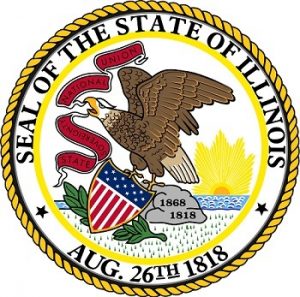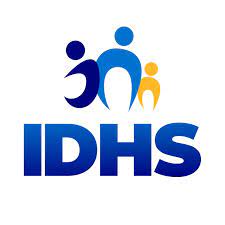SPRINGFIELD – As lawmakers returned to the Capitol during the week, members of the Senate Republican Caucus stood together to oppose recent public comments by Democrat legislators about restarting a campaign for a progressive income tax.
The Illinois Department on Aging has announced that nominations are now being accepted for the Senior Illinoisan Hall of Fame and will be open until June 1.
Throughout the month, the Governor has been announcing his appointments for Directors of various state agencies. While most appointees are continuing to serve in the same position, there are five new appointments for the Senate to approve.
In other news, the Illinois Department of Human Services announced that due to federal requirements, the emergency COVID-19 allotment awarded to each household is going away starting in March.
Senate Republicans oppose progressive income tax

In a Jan. 25 Capitol press conference, Senate Republicans announced that they stand firmly against efforts seeking another progressive income tax, in response to recent public comments by some lawmakers who would like to switch the state from a flat income tax to a progressive income tax.
Illinoisans went through this same process in 2020, when Democrats began discussing different plans for implementing a progressive income tax. Legislation was filed and a proposal was placed on the 2020 general election ballot for voters to support or reject. To adopt the tax, voters would have had to repeal Illinois’ constitutional requirement of a flat income tax. The proposal was resoundingly rejected by voters, but that hasn’t stopped Democrats from talking about trying again.
Senate Republicans have worked together to craft a resolution that rejects any further attempt to raise taxes through a constitutional amendment instituting a progressive income tax.
State Sen. Dave Syverson (R-Cherry Valley) has warned about the potential for tax hikes through a progressive income tax and he continues to oppose the idea. Rather than seeking to raise taxes for Illinois residents, the Governor and his allies should focus on living within the budget and not overspending.
Syverson said Senate Republicans disavowed attempts by Senate Democrat legislative leaders to once again push a controversial proposal to shift Illinois from a flat income tax to a graduated income tax. Approximately 55 percent of voters participating in the Nov. 3, 2020, general election rejected a Constitutional Amendment to allow a graduated income tax.
“Illinois had a record amount of tax revenue for 2022, so for Democrat legislative leaders to start this year with talk of even more taxes shows how out of touch they are. Government doesn’t have a revenue problem, they have a spending problem,” said Syverson. “It is hard to fathom that Democrat legislative leaders are once again focusing on changing Illinois’ income tax structure, just a little more than two years after Illinois voters said ‘NO’ to the idea. What is the point of asking voters for their input, if you are going to ignore their answers?”
Syverson also noted Democrat leaders’ unwillingness in 2019 to include additional taxpayer safeguards, especially when considering future tax increases under a graduated income tax system.
“Since the inception of this proposal, no consideration has been given to long-term protections for our middle-class taxpayers,” said Syverson. “The Democrat-majority promises short-term relief, but steadfastly refuses to put in place the Constitutional protections needed to ensure our middle class won’t suffer down the road. If they really want to protect our taxpayers, they should support the Constitutional safeguards needed to guarantee the middle class won’t be left to foot the bill.”
Nominations for Senior Hall of Fame

The Illinois Department on Aging is accepting nominations for 2023 inductees to the Senior Illinoisan Hall of Fame. This honor is open to adults ages 65 or older who excel in the categories of community service, education, performance and/or graphic arts, and the labor force. Each year, four people are added who have contributed greatly to these fields. The nominations are open until June 1, and anyone can nominate a candidate. Information about the process, the online nomination form, and a printable version of the nomination form are available on IDoA’s website.
To nominate someone for the Senior Illinoisan Hall of Fame, submit an application with five questions that detail the nominee’s contributions and provide a photo of the nominee. The pool of nominations will then be reduced to a list of 44 people. From this list, a panel of judges will select the final four to be added to the Hall of Fame. Generally, one person is chosen to represent each individual field, although occasionally more than four people are selected.
Governor selecting state agency directors

On Jan. 23, the Governor officially announced several selections for his Administration’s Agency Directors. Five appointees will be new to their positions. As of now, the only appointment confirmed by the Senate is Natalie Finnie, the new Director of the Department of Natural Resources. Finnie will be moving to this position from her previous role as Deputy Director, having served in that position since August 2021. Before she joined the Department, Finnie was a State Representative.
The four positions not yet approved by the Senate are Raven DeVaughn as Director of the Illinois Department of Central Management Services, Kristin Richards as the Director of the Illinois Department of Commerce and Economic Opportunity, Ray Marchiori as the Temporary Director of the Illinois Department of Employment Security, and Brandon Ragle as the Temporary Secretary of the Illinois Department of Innovation and Technology.
The Governor was recently asked by reporters if he would reappoint Marc Smith, the embattled head of the Illinois Department of Children and Family Services. In response, Pritzker said he planned to reappoint him, despite controversies surrounding the department, including the fact that courts have held Director Smith in contempt eight times for issues with placement of children.
Planned SNAP reduction scheduled for March

Under direction from the federal government, the Illinois Department of Human Services will be returning SNAP benefits to pre-pandemic levels. Since April 2020, an emergency SNAP allotment was added to the regular monthly benefits to address the worsening food insecurity challenges resulting from the COVID-19 pandemic. The Department recently announced that the extra benefits will be ending in February and will no longer be applied officially by March 1.
The estimates right now are that the planned SNAP reduction will decrease monthly benefits from $95 to $255 per household. The Department has put together a resource page for constituents who may need assistance in managing this reduction in funds. The Department will also be working closely with various communities and organizations to develop additional support and resources for families struggling with this reduction.

